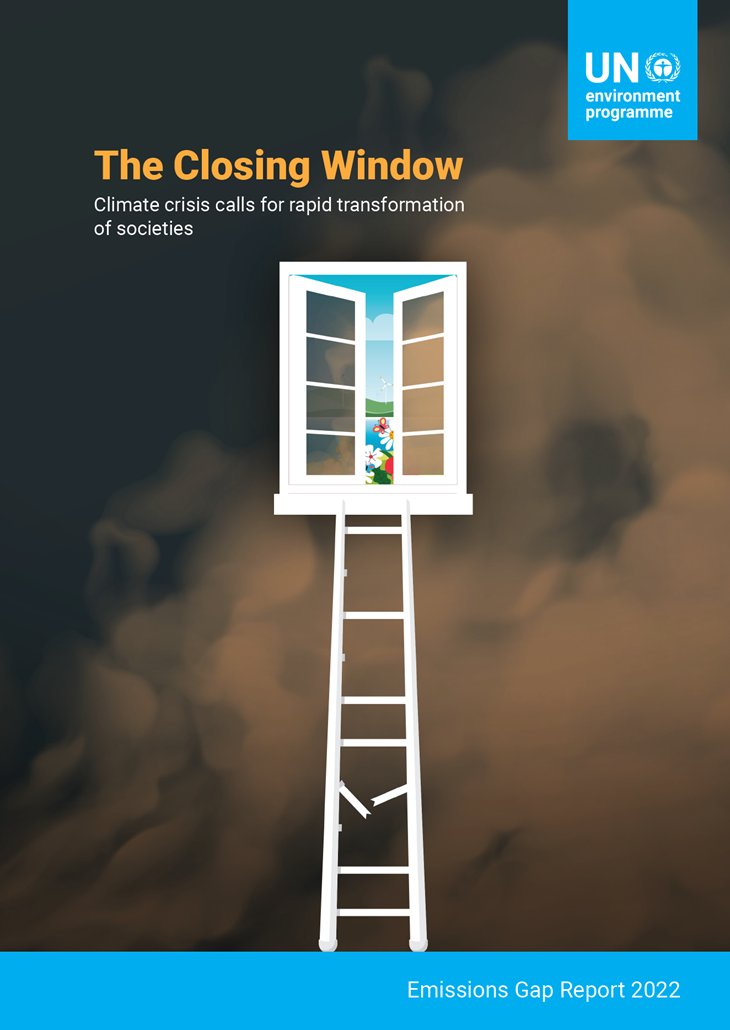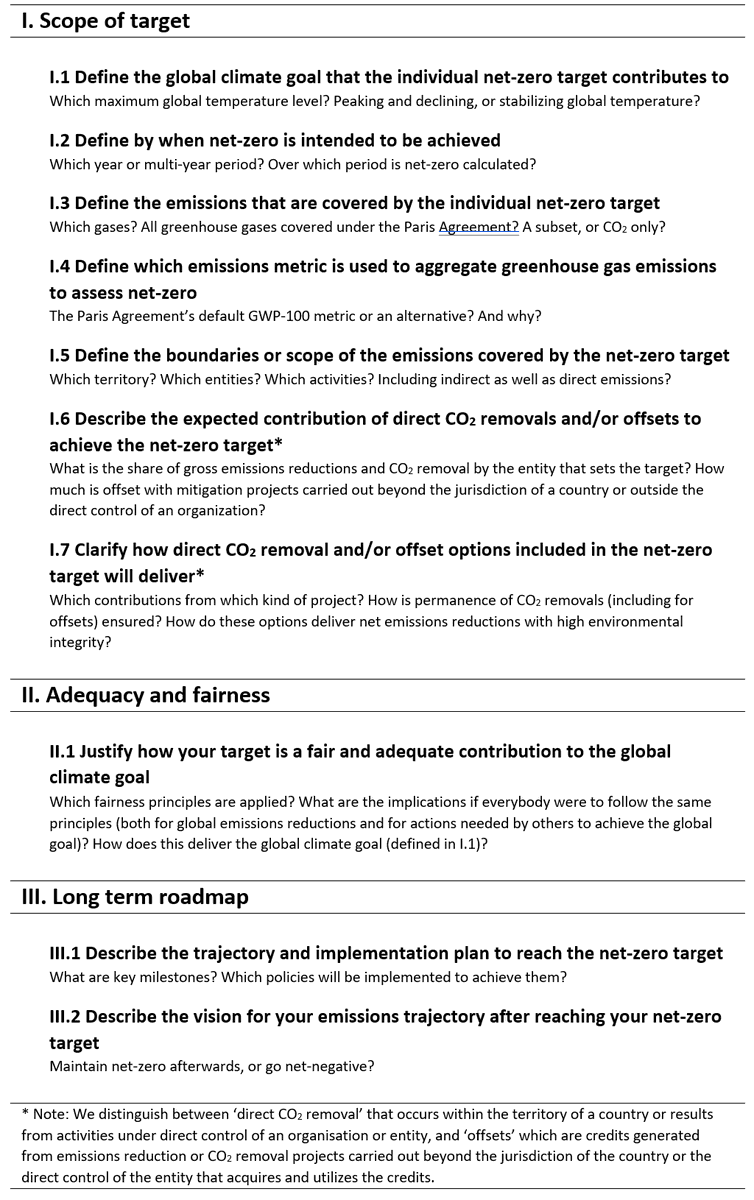
Where are global emissions heading and where should they be going to keep #globalwarming well below 2C and 1.5C?
Today, @UNEP released the 2022 #emissionsgap report.
A look at the key messages
but caution, not much good news ahead 🧵/1
Today, @UNEP released the 2022 #emissionsgap report.
A look at the key messages
but caution, not much good news ahead 🧵/1

Countries’ new and updated pledges (NDCs) submitted since COP26 reduce projected global GHG emissions in 2030 by only 0.5 gigatons of CO2 equivalent (GtCO2e) compared with projections based on pledges at the time of COP26.
Some pledges result in even higher emissions /2
Some pledges result in even higher emissions /2

Countries are off track to achieve even the globally highly insufficient NDCs. Global GHG emissions in 2030 based on current policies are estimated at 58 GtCO2e. The implementation gap in 2030 between policies and NDCs is about 3 to 6 GtCO2e. /3
The emissions gap in 2030 is 15 GtCO2e annually for a 2C pathway and 23 GtCO2e for a 1.5C pathway.
This assumes full implementation of the unconditional NDCs, and is for a 66 per cent chance of staying below the stated temperature limit. /4
This assumes full implementation of the unconditional NDCs, and is for a 66 per cent chance of staying below the stated temperature limit. /4

If, in addition, the conditional NDCs are fully implemented, each of these gaps is reduced by about 3 GtCO2e.
We do know how deeply emissions should be reduced to be on track to limit warming to 1.5C or well below 2C /5
We do know how deeply emissions should be reduced to be on track to limit warming to 1.5C or well below 2C /5

Policies currently in place with no additional action are projected to result in global warming of 2.8C over the twenty-first century. Implementation of unconditional and conditional NDC scenarios reduce this to 2.6C and 2.4C respectively. /6
Depending on what is assumed to happen to emissions after 2030, these projections can be higher or lower by half a degree Celsius. /7 

To get on track to keep warming to 1.5C, global GHG emissions in 2030 must be reduced by 45% compared to what policies currently in place deliver, and they must continue to decline rapidly after 2030, to avoid exhausting the limited remaining atmospheric carbon budget. /8
Furthermore, global GHG emissions could set a new record in 2021, rebounding fully from a short slump because of COVID lockdowns. /9 



Despite the call for countries to “revisit and strengthen” their 2030 targets, progress since COP 26 is highly inadequate.
Indeed, we see less than 1 GtCO2e improvement in NDCs since Glasgow #COP26, @COP26
Where is Egypt's leadership on this, @COP27P ? /13
Indeed, we see less than 1 GtCO2e improvement in NDCs since Glasgow #COP26, @COP26
Where is Egypt's leadership on this, @COP27P ? /13

G20 members are far behind in delivering on their mitigation commitments for 2030, causing an implementation gap.
In other words, in aggregate, the highly inadequate commitments are even not achieved because of a lack of effective policies /14
In other words, in aggregate, the highly inadequate commitments are even not achieved because of a lack of effective policies /14

Globally, the NDCs are highly insufficient, and the emissions gap remains high /15
If announced net zero targets are achieved global warming could be much lower than the 2.8C implied by current policies.
However, in most cases, neither current policies nor NDCs currently trace a credible path from 2030 towards the achievement of national net-zero targets. /16
However, in most cases, neither current policies nor NDCs currently trace a credible path from 2030 towards the achievement of national net-zero targets. /16

Important to remember:
Under current policies there remains a 1-in-5 chance that warming ends up beyond 3C until the end of the century, continuing to increase thereafter.
In the best of worlds with all net zero targets there is a similar chance for warming still exceeding 2C /18
Under current policies there remains a 1-in-5 chance that warming ends up beyond 3C until the end of the century, continuing to increase thereafter.
In the best of worlds with all net zero targets there is a similar chance for warming still exceeding 2C /18

Finally, very often the high cost of climate action is mentioned.
We now put these estimates in perspective and show how costs compare to baseline GDP growth and gains achieved by cleaning up the economy and avoiding climate change.
A quite compelling picture if you ask me. /19
We now put these estimates in perspective and show how costs compare to baseline GDP growth and gains achieved by cleaning up the economy and avoiding climate change.
A quite compelling picture if you ask me. /19

In addition to these high level messages, the report also dives deeper into some of the transformations needed to bring GHG emissions down (Chapter 5), the potential for GHG reductions in food systems (Chapter 6) and how to transform the finance system (Chapter 7) /20 

As every year, it was a privilege and a pleasure to contribute to this @UNEP initiative and work alongside so many impressive colleagues.
@joanna_portugal @micheldenelzen @tarynfransen @TakeshiKuramo @Kelly_Levin_ and so many others /22
@joanna_portugal @micheldenelzen @tarynfransen @TakeshiKuramo @Kelly_Levin_ and so many others /22
Also a big thank you to the contributing authors on my chapter I was responsible for:
@JKikstra @RobinLamboll @gauravganti @CarlSchleussner @alexkoberle @shivikamittal1 @CleaSchumer /END
@JKikstra @RobinLamboll @gauravganti @CarlSchleussner @alexkoberle @shivikamittal1 @CleaSchumer /END
• • •
Missing some Tweet in this thread? You can try to
force a refresh











